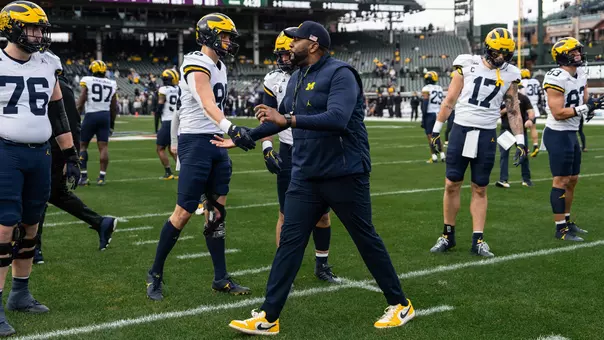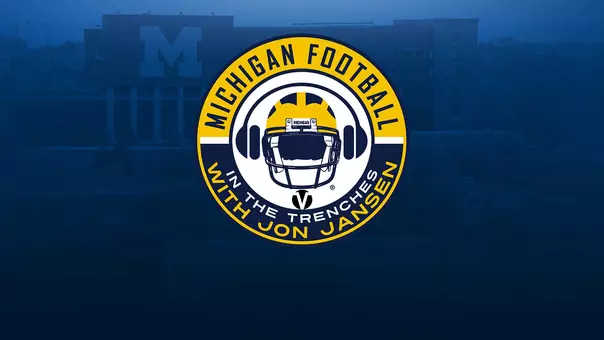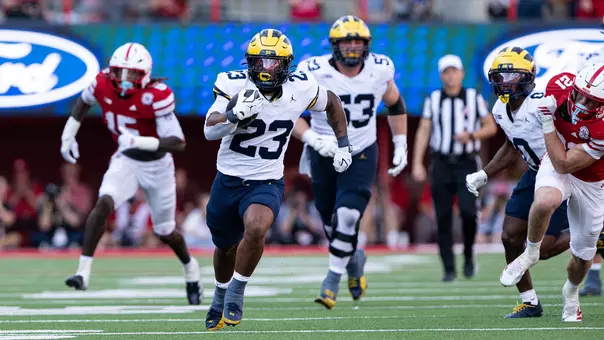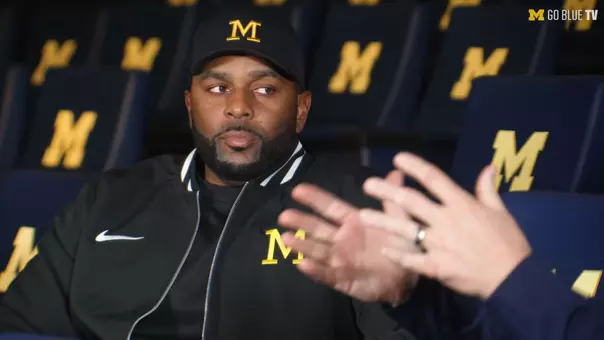Alumni Spotlight: Clay Miller
12/10/2014 12:00:00 AM | Football

Clay Miller ('85) was a five-year member of the University of Michigan football team while earning his degree in economics. After graduation, he was drafted by the Tampa Bay Buccaneers and played in three games for the Houston Oilers before attending law school at Northwestern University, from which he graduated in 1989. He then enrolled in the Harvard Business School and later founded Stone Arch Capital in 2006, where he is currently a partner.
Miller recently say down with MGoBlue.com to talk about his football days, as well as the Mentoring Networking Meeting and Dinner -- his networking program of former U-M football players who help current student-athletes plan out their futures after football.
Q. What inspired you to create this event?
A. This was always something I wished had been in existence when I came out of school. I came out back in '85 and people were always trying to be helpful, but there was nothing formal and there was no real network out there that was presented as a way to help you figure out what you wanted to do or how to get started in it. I had been thinking about it for a long time. My wife was the catalyst and she said, "Well, why don't you do something about it?" About eight years ago, we got the ball rolling, first with Lloyd (Carr) and then with (Rich) Rodriguez and the athletic department picked it up. This is now the seventh consecutive year that we've done this and every year it gets a little bit bigger and a little bit better. It's been really rewarding. It's always a very humbling and thrilling thought that all of these guys can come back. Everyone comes on their own, no one has their way paid. Everybody pays out of their own pocket, so you have to understand how much this means to everybody.
Q. What have you done since the end of your football career?
A. Football came to a screeching halt with me. Sometimes what happens when you get to the NFL is you get cut. You're in camp, then suddenly, you're not. After a cup of coffee and two training camps in the NFL, I found myself on the outside of football looking in. I stumbled into law school because I really didn't have a better plan. It worked out well for a while, but three years of law school and four years of practice with a large New York firm suddenly left me feeling like I didn't want to do that. So, I went back and got my MBA and got into the private equity world a little over 20 years ago now. I worked for several firms before I founded my own about ten years ago.
Q. How did U-M prepared you for life after football?
A. Football is a tremendous crucible in terms of teaching you how to work hard, how to be committed to something, and stick with it, and how to really persevere. I think through all of the experiences I've had in my life, playing football here was one of the more molding that I can imagine. Playing for a guy like (Bo) Schembechler back in those days, there was no excuse, there was no one feeling sorry for you. You either did it or you didn't do it. You really needed to learn to be disciplined and have a lot of self focus and drive. You needed to choose how you wanted to succeed and go make it happen. I've been able to carry that into all other facets of my life. Being a father, being a husband, being successful in business and enjoying my career.
Q. What were some of your most fulfilling moments?
A. As it relates to Michigan, we had a really difficult year in 1984, where we were a MASH unit. Half the team was banged up. We started the season by beating the defending national champions, Miami, here, and then the rest of the season started to wobble when all of the injuries occurred. We came back my fifth year and we went 10-1-1 and we were one field goal away from probably being national champions. We beat Nebraska in the Fiesta Bowl that year. That was a very rewarding experience in terms of not only pulling it all back together after a tough patch, which teaches you a lot too. The difference between good and great is oftentimes not very much, and I was happy to able to finish on a high note here. I had a tremendous experience here. I was very fortunate, I got to play every year and I was here five years, and was a five-year letterman. That's kind of an anomaly in its own right because of all the work I put in. That was probably the most fulfilling experience here, along with the friendships you make. When it's all done, what you remember is the stuff that happens after practice with the guys more than any game. There's not one game that sticks out over the others. The whole experience kind of overwhelms you. Personally, probably the best thing I've ever done was become a dad. I've got two lovely daughters that have done really well. All of your professional success is great and fulfilling, but ultimately, it's the personal relationships that mean the most to me. That's why doing this is a great reward and very fulfilling for me, and for everybody who comes. Nobody gets paid to do this. Everybody is on their own nickel. It's a way for us to give back to the program, other than just writing a check. It's really a way to feel close to the program and give back to it. That's why everybody is here.
Q. What are you goals moving forward?
A. My goal is for this to continue, and to get bigger and better. I view this as closing the circle on a Michigan promise. The deal is when you come to Michigan, you'll give it your all for the university, for your academics, for the football team and for the program. The flip side is you get a great education. That education is really worth something. It's not just a piece of paper. It's an entrance into a career path, into a way to feed your family and take care of yourself for the rest of your life. This circles back, with the older guys trying to help the young guys. It's a really meaningful piece of the puzzle that I thought was lacking to some extent. It was always there informally, but the more we can put some structure around it, the more formal and real it is for people to be able to see, even at a young age, that promise is kind of self-fulfilling. The other thing is to enjoy what I do and enjoy spending time with my friends and enjoy some of the hard work I've put in over the last 30 years.
The recently created Office of Alumni Engagement strives to foster a community, recognize the holistic student-athlete and honor the great Michigan Athletics history. This alumni spotlight illustrates the impact that our alumni are having around the world and how they stay engaged with Michigan.










